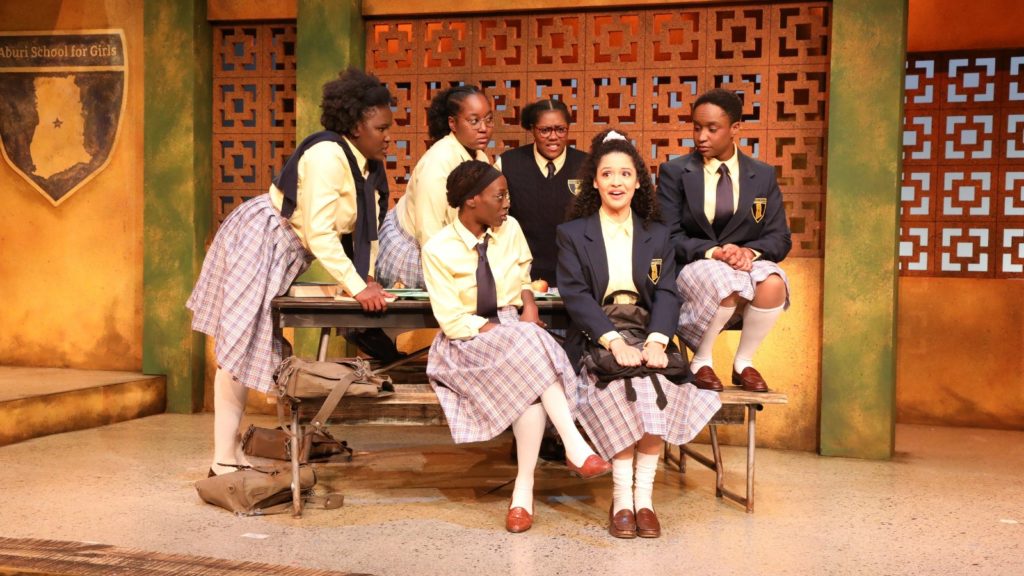
Last night, Thursday, February 10, Nashville Repertory Theatre presented Opening Night of the regional debut of Jocelyn Bioh’s Off-Broadway hit, School Girls; or the African Mean Girls Play, the first production in The Rep’s long history to feature an all Black Female cast. I was scheduled to attend in order to review the show, but sadly, had to miss out last-minute. Lucky for me, though, earlier this week, I had the opportunity to pose five questions each to Tosha Marie, Joy Pointe, Cynthia Harris and Tamiko Robinson Steele—four members of the cast—for my latest Rapid Fire 20 Q.
———————————————
RAPID FIRE 20Q WITH CAST OF SCHOOL GIRLS; OR, THE AFRICAN MEAN GIRLS PLAY
 RAPID FIRE Q&A WITH TOSHA MARIA, SCHOOL GIRLS’ ERICA BOAFO
RAPID FIRE Q&A WITH TOSHA MARIA, SCHOOL GIRLS’ ERICA BOAFO
JHPENTERTAINMENT: What can you tell me about Ericka Boafo?
TOSHA MARIE: Ericka is an American girl who is thrown into this new country/culture and is trying to figure out who she is and how she fits in during a very difficult time in her life. She is hopeful and is looking to make some new friends in this foreign land she now calls home while still battling some inner demons. She also looks different from everyone else! So she is navigating being the lightest girl in the school and how that affects her confidence and social standing, and as these things tend to be… It’s never quite as simple as you think.
JHPENTERTAINMENT: In addition to acting, Nashville’s theatre community is also very familiar with your work as a choreographer. In fact, you recently choreographed Nashville Rep’s Ragtime. I’d imagine your background in dance might give you an extra understanding of the importance of subtle movements that often help the audience understand a character even when they’re not speaking. Do you think that’s a fair assessment?
TOSHA MARIE: That’s very fair! Even though there isn’t any dancing in the show, I am physically exhausted by it because of the tension I hold in certain areas of my body. There are moments when Ericka is super unsure of herself and the physicality that it evokes in me is a different way than how I live my life. You don’t learn that much about Ericka until closer to the end of the play, so putting all of her background into my physical being is very fun for me. You can kinda be like… ok, what is going on with this chick? Also, it’s very hard for me to not move so that presents its own challenges as I tend to twirl and bob about a lot and Ericka is not really a dancer like Tosha is!
JHPENTERTAINMENT: This is the first time School Girls has been performed in Nashville, so it’s pretty safe to say the majority of the audience won’t be familiar with the show. How exciting is it to in essence, create a role for a particular audience?
TOSHA MARIE: Exciting and terrifying! Haha! I want to do her justice because there aren’t very many roles created about this topic for people that look like me and I know this might be the first time some people may hear this type of story be told. So I hope people like her and relate to her and learn a bit more about what it means to be a light skinned black woman.
JHPENTERTAINMENT: When not involved in live theatre productions, you also own and run TMProductions, a successful dance studio and performing arts space. You recently posted about your company’s diversity initiative. Can you tell me a little about that and the passion behind it?
TOSHA MARIE: Gladly! I started TMProductions because I was really tired of the cliquish and elitist nature of the Nashville theatre scene. Connected people meeting other connected people in their small privileged circles was causing me to have to continue to fight to be seen by professional companies to no avail, even though I’ve been in the business for over a decade and felt like I had proved my worth on many occasions. So when I lost all my income in 2020 I decided to do something about it. I had spent so long hustling for scraps from other companies, it was time to hustle for myself and try to make it easier for other people to break into the business. Thus TMP was born. Our mission states “TMProductions exists to serve the driven and underrepresented creative. We provide equity with access to knowledge, clarity of what it takes to have a career in the performing arts, in-house resources and opportunities to support that pursuit, and an intentional safe, inclusive atmosphere that nurtures, honors, and celebrates the authentic and unique self.” So with our popularity increasing and more theatre companies coming to us to have auditions and rehearsals we felt like we had to have a concrete policy regarding diversity as most of the organizations approaching us were predominately white with non-existent/tense relationships with the BIPOC community. So many people have expressed their struggles with me that I couldn’t not do something to help my community. Our policy encourages diversity from cast and crew, to leadership positions within the organizations hopefully creating positions for traditionally marginalized groups. I must say, as nervous as I was about it, I think it will make an impact on our local scene and I hope you can start to see a beautiful array of talent on and behind the stage starting next season.
JHPENTERTAINMENT: School Girls touches on the subjects of conformity, sameness and fitting in, first and most obviously in the subtle costume concept of the girls all wearing uniforms, but also in the inclusion of a subplot involving the practice of bleaching one’s skin. As a light skinned Black woman yourself, can you speak on the struggle of fitting in while also being individual enough to stand out?
 TOSHA MARIE: Well, blackness often gets lumped as a monolith of experiences with light skinned people being seen as getting more privileges. Which can be very true. I see more casting calls for “ethnically ambiguous” people (aka lighter skinned) than I do for dark skin. But what people don’t always know is that being biracial is its own struggle. Feeling like you don’t belong with either white or black identities, and when growing up, there were very few other biracial children to relate to. My mom was born in the 60’s during the civil rights movement, so her whole generation started their lives segregated. The fact that she, as a white woman, had me out of wedlock with a black man was a huge scandal in the south. So out of all of my years of education I can literally name 2 other mixed kids that I went to school with. Which means by nature, I stood out. All I wanted was to fit in. A lot of times I was too white for the black kids and too black for the white kids. So I did my best to just be me. There has been a lot of searching to figure out who that is, and I still struggle with it today, but I’m learning to love and appreciate myself and my identity. This cast and creative team have created such a safe and encouraging space to explore that and really help each one of us in not only this artistic endeavor, but our personal journeys as well.
TOSHA MARIE: Well, blackness often gets lumped as a monolith of experiences with light skinned people being seen as getting more privileges. Which can be very true. I see more casting calls for “ethnically ambiguous” people (aka lighter skinned) than I do for dark skin. But what people don’t always know is that being biracial is its own struggle. Feeling like you don’t belong with either white or black identities, and when growing up, there were very few other biracial children to relate to. My mom was born in the 60’s during the civil rights movement, so her whole generation started their lives segregated. The fact that she, as a white woman, had me out of wedlock with a black man was a huge scandal in the south. So out of all of my years of education I can literally name 2 other mixed kids that I went to school with. Which means by nature, I stood out. All I wanted was to fit in. A lot of times I was too white for the black kids and too black for the white kids. So I did my best to just be me. There has been a lot of searching to figure out who that is, and I still struggle with it today, but I’m learning to love and appreciate myself and my identity. This cast and creative team have created such a safe and encouraging space to explore that and really help each one of us in not only this artistic endeavor, but our personal journeys as well.
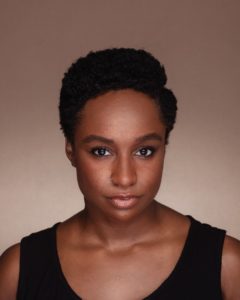 RAPID FIRE Q&A WITH JOY POINTE, SCHOOL GIRLS’ PAULINA SARPONG
RAPID FIRE Q&A WITH JOY POINTE, SCHOOL GIRLS’ PAULINA SARPONG
JHPENTERTAINMENT: Tell me about Paulina Sarpong.
JOY POINTE: Paulina is a senior at Abri Girls School, and the queen bee of her friend group. Paulina operates in cruelty and pettiness to hide her own insecurities and fear of being left out, left behind, or forgotten. She uses the word “influential” for herself at least twice in the show, and that’s exactly how she wants and even needs to be seen. If someone could be described as strong and scared, I think Paulina would fit.
JHPENTERTAINMENT: This production of School Girls is the very first production in Nashville Rep’s 37 year history to feature and all-Black female cast. What’s it like knowing you’re making history?
JOY POINTE: It is humbling and incredible. It took me a very long time to really love every part of my very black self. I grew up hearing “you talk White,” and “I’m more Black than you,” from a lot of White people around me, and I wasn’t confident in who I was. Now I know that what I experience IS the Black experience because I am Black and I’m Proud. I’m honored to be Black History happening right now.
JHPENTERTAINMENT: Your role as Paulina marks a return to Nashville Rep’s stage. What is it about the company that drew you back for this show?:
JOY POINTE: I absolutely love working for Nash Rep. This company as a whole is inclusive, down to earth, and protective. I’ve never felt more safe doing a production in a pandemic world. The communication with different departments and levels of admin is great. The whole staff is always supportive in getting us what we need to make a production happen, and I couldn’t be more thankful.
JHPENTERTAINMENT: All of the action of the play takes place in the cafeteria of the school. Do you think that was a purposeful decision by the playwright, Joselyn Bioh? Perhaps to present school as a microcosm of society as a whole?:
JOY POINTE: I do believe the setting choice was purposeful, maybe even in a deeper level than just convenience of staging. Obviously, it’s easier to play in one space without having to move set and staging and adding a bunch of crew members if you keep it in one place, but it can be said and even observed that this setting is just a fractional look into what can be seen in the grander view.
 JHPENTERTAINMENT: Without giving too much away, during the course of the play, the audience is privy to Paulina’s own insecurities and the source of her attitude towards others and her behaviors. How important is the message in School Girls to break such cycles of infighting and bullying among young women, not just young Black women, but all young women?:
JHPENTERTAINMENT: Without giving too much away, during the course of the play, the audience is privy to Paulina’s own insecurities and the source of her attitude towards others and her behaviors. How important is the message in School Girls to break such cycles of infighting and bullying among young women, not just young Black women, but all young women?:
JOY POINTE: Honestly, and without giving too much away, I don’t believe the main focus is about breaking bullying cycles. It’s a narrative we’ve heard and seen over and over again. Even most young people are familiar with it, understand underlying reasons for bullying, and are encouraged to be kind because you never know what others are going through. There’s so much more in this story that I believe people will be taught, maybe even for the first time.
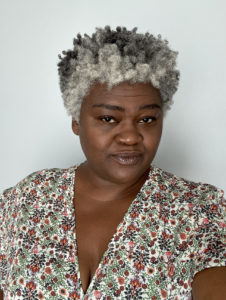 RAPID FIRE Q&A WITH CYNTHIA HARRIS, SCHOOL GIRLS’ HEADMISTRESS FRANCIS
RAPID FIRE Q&A WITH CYNTHIA HARRIS, SCHOOL GIRLS’ HEADMISTRESS FRANCIS
JHPENTERTAINMENT: What can you tell me about Headmistress Francis?
CYNTHIA HARRIS: Headmistress is dedicated to protecting and educating all her students. She loves her girls and wants to help them succeed through education.
JHPENTERTAINMENT: When the audience first see’s Headmistress Francis interacting with the fabulous Tamiko Robinson Steele’s Eloise Amponsah, they’re quick to see parallels between their relationship and that of Paulina and Ericka. This points to the adage, as Dame Shirley Bassey once sang, “its all just a little bit of history repeating”. How important is it to recognize the patterns of tearing each other down to give one’s self the sense of building themselves up?
CYNTHIA HARRIS: I think both pairs show us what happens when our power, or part of our identity is challenged or threatened. Eloise has her pageant title and Paulina feels security in being leader of the pack. Ericka and Headmistress interrupt Paulina and Eloise’s narratives.
JHPENTERTAINMENT: From what I understand, that this marks your Nashville Rep debut? How has the experience been so far?
CYNTHIA HARRIS: Yes, this is my Rep debut. I stepped into the role the night before rehearsal began to replace another actor. It was an immediate YES to work with Alicia on this play. It has been a wonderful experience. We’ve bonded and I think I’m now an official auntie to many of my castmates. Alicia Haymer, the show’s director, created a space for us to explore the text, the colorism experienced by women of color across the African Diaspora, Western or Colonized Beauty standards, and so much more. It is a joy to walk into rehearsal and play with each other.
JHPENTERTAINMENT: You, yourself are a playwright. Given that, how does that enhance your performance in this role?
CYNTHIA HARRIS: I love stories about Black women. I love understanding the nuance and complexity of our lives and our decisions. I’m in my happy place with this play by Ms. Bioh.
 JHPENTERTAINMENT: Beyond School Girls, among your future projects, Actors Bridge Ensemble will soon present your original play The Calling is in the Body. What can you tell me about it?
JHPENTERTAINMENT: Beyond School Girls, among your future projects, Actors Bridge Ensemble will soon present your original play The Calling is in the Body. What can you tell me about it?
CYNTHIA C. HARRIS; TCIITB is about a young HIV Educator in the 90s, Deidre Williams. She was the first African American to share her status and work as a peer educator. I met her as a teen and she’s had a lifelong impact on me. Over the past few years, I’ve met and interviewed people that remember her work with Nashville CARES, worked with her, cared for her, or were her friends. I’m excited to lift her name and to make sure that her impact can still be felt.
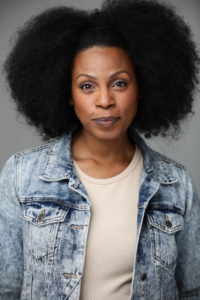 RAPID FIRE Q&A WITH TAMIKO ROBINSON STEELE, SCHOOL GIRLS’ ELOISE AMPONSAH
RAPID FIRE Q&A WITH TAMIKO ROBINSON STEELE, SCHOOL GIRLS’ ELOISE AMPONSAH
JHPENTERTAINMENT: Alright, it’s no secret that you are one of my theatre crushes. I just adore everything you do. Who is Eloise Amponsah and what does she represent to you?
TAMIKO ROBINSON STEELE: Awwwww Jonathan! Flatter me darling, flatter me! lol Ms. Amponsah represents the idea of “It’s a dog eat dog world!” She feels that she has had to fight for everything, and has been overlooked. She will do everything *in her power* to “win.”
JHPENTERTAINMENT: Aside from the character you portray, do you recognize aspects of the other girls in people you knew when you were in school, yourself?
TAMIKO ROBINSON STEELE: Of course! Even myself. I was more shy and sensitive in grade school, and so I would’ve identified with Nana.
JHPENTERTAINMENT: Growing up, I think most people deal with bullying to some degree. Some, like the character, Paulina, are the aggressor, while others, like Ama, Mercy, Gifty and Nana, bear the brunt of the bullying. What’s the lesson to be learned from such behavior?
TAMIKO ROBINSON STEELE: DON’T DO IT! That’s so much easier to say, I know. But I think it’s important when people notice that behavior that they speak up. Be a voice for the voiceless.
JHPENTERTAINMENT: While the title of the show fully acknowledges some slight similarities between this play and Tina Fey’s Mean Girls, School Girls touches on and deals with much heavier themes in a more serious manner. How do you find a balance between the seriousness of the subject matter on stage and an enjoyable work experience behind the scenes?
TAMIKO ROBINSON STEELE: I just have to be present. Take it all in. We did some amazing work with an emotional support coach in the rehearsal period. I try to remember the  exercises we did, and lean in to those to cover my real self outside of the character.
exercises we did, and lean in to those to cover my real self outside of the character.
JHPENTERTAINMENT: Speaking of balance, the show is perfectly balanced with humor and thought-provoking circumstances. What do you hope audiences take away after seeing School Girls; or the African Mean Girls Play?
TAMIKO ROBINSON STEELE: I hope they leave thinking of the people who have had to walk through life with society pressing down on them. I also hope they feel the love and joy, that even under those circumstances, black women carry.
———————————————
School Girls; or, the African Mean Girls Play continues its Tennessee debut run at Nashville Repertory Theatre now through Sunday, February 20 with evening performances at 7:30p.m. Feb. 11, 12, 17, 18 & 19, and 2p.m. matinees on Feb. 13, 19 & 20. A quick look at The Rep’s ticketing site reveals limited tickets remain for each performance, so you better act fast. CLICK HERE to purchase tickets.
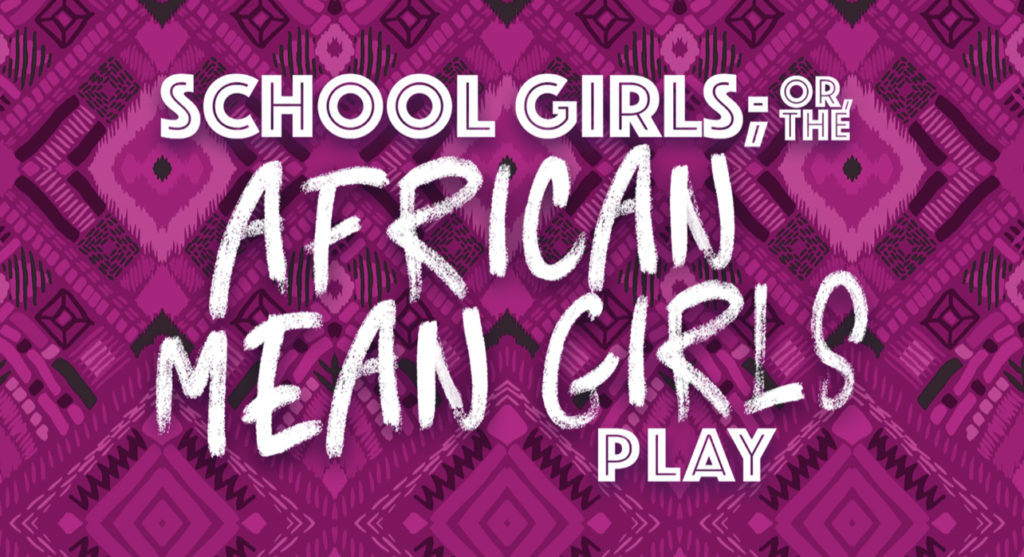 Up next at Nashville Rep is Disney and Cameron Mackintosh’s Mary Poppins playing April 28-May 8, 2022 in TPAC’s Andrew Johnson Theatre. Check out Nashville Rep online HERE and follow them on Facebook, Twitter, YouTube and Instagram.
Up next at Nashville Rep is Disney and Cameron Mackintosh’s Mary Poppins playing April 28-May 8, 2022 in TPAC’s Andrew Johnson Theatre. Check out Nashville Rep online HERE and follow them on Facebook, Twitter, YouTube and Instagram.
As always, if you wanna follow JHPEntertainment to find out who I’m chatting with for my next Rapid Fire Q&A, or for my take on the latest local and national theatre, music and movie offerings, find us at JHPEntertainment on Facebook, JHPEntertainment on Instagram and JHPEntertainment on Twitter. Got an event or show we should know about, drop us a line at the Contact tab. Till then, #GoSeeTheShow!